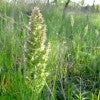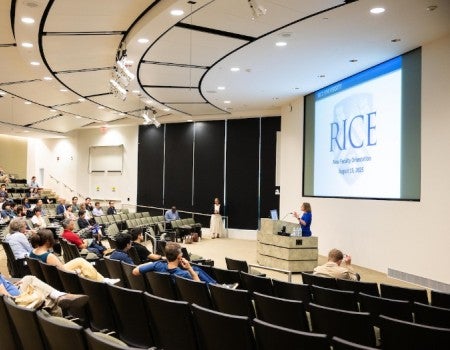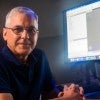

Sex-specific climate responses in plants reveal flaws in biodiversity forecasts
A new study highlights the need to refine biodiversity forecasts to account for the sex-specific responses to Earth’s changing climate.

Rice’s Kinder Institute provides insight into how Houstonians view deportation and related policies....

Members of the Rice community gathered to celebrate Paul Padley....

The honors reflect both the technical ambition of “SPILL” and the artistry of its creative team. ...

Rice scientists have discovered that tiny creases in two-dimensional materials can control electrons’ spin with record precision, opening the path to ...

Rice’s Office of Technology Transfer has entered into a subscription agreement with Intel Corporation which will enable the global technology leader t...

Just like incoming freshmen are getting to know the Rice campus during O-Week, newly hired faculty spent two days in an orientation of their own befor...
A team of materials scientists at Rice has developed a new way to grow ultrathin semiconductors directly onto electronic components....

New flocks of Owls filled Tudor Fieldhouse with chants, signs and competitive spirit as they represented their residential colleges and cheered on Ric...

After more than a decade of outstanding leadership at Rice, Paul Cherukuri, the university’s top innovation executive, will be leaving his post to acc...

A team of researchers at Rice has developed MIST — Mineral Identification by Stoichiometry — the first online tool capable of automatically identifyin...

A collaboration between Rice, Baylor College of Medicine and Texas Children’s Hospital’s Jan and Dan Duncan Neurological Research Institute (NRI) has ...

On the second morning of O-Week, Rice’s Class of 2029 assembled in Tudor Fieldhouse to hear advice from professors who shared their academic experienc...

Sex-specific climate responses in plants reveal flaws in biodiversity forecasts
A new study highlights the need to refine biodiversity forecasts to account for the sex-specific responses to Earth’s changing climate.

Shining a spotlight on excellence: Association of Rice Alumni honors Laureates Award recipients
A festive crowd of alumni and friends gathered at the Post Oak Hotel in Houston to celebrate Rice’s most dedicated supporters at the Association of Rice Alumni’s annual Laureates Celebration May 8.

Rice researchers engineer personalized treatments for movement impairments
Impaired neuromusculoskeletal function due to conditions such as stroke, osteoarthritis, cerebral palsy, Parkinson’s disease, limb amputation, spinal cord injury, traumatic brain injury and cancer is a leading cause of disability.

Rice to offer Bachelor of Science in artificial intelligence
To prepare the next generation of innovators and thought leaders in AI, Rice will offer a Bachelor of Science in AI beginning in the fall of 2025.

Lydia Kavraki named University Professor, the highest faculty distinction at Rice
In a landmark moment for Rice, renowned computer scientist Lydia E. Kavraki has been named a University Professor, the institution’s highest academic rank. She becomes only the 11th person and the third woman in the university’s 112-year history to earn this prestigious title.

Public transit operators keep cities moving, helping people get to work, attend medical appointments and access essential services. But while passenger safety is often in the spotlight, the health and well-being of drivers who spend long hours behind the wheel is frequently overlooked.

Rice’s Mikos elected to the European Academy of Sciences
Rice bioengineer Antonios Mikos has been elected to the European Academy of Sciences, an international body that recognizes excellence in scientific research and technological innovation.

The 2025 Kinder Houston Area Survey, one of the nation’s longest-running studies of an urban area, was released today at the institute’s annual luncheon.

Rice chemist Kürti named 2025 Ross M. Brown Investigator for energy research
Rice chemistry professor László Kürti is a recipient of the 2025 Ross M. Brown Investigator Award.

Recently, a team of scientists and engineers at Rice discovered a phenomenon on a microscopic scale, where tiny magnetic particles driven by rotating fields spontaneously move along the edges of clusters driven by invisible “edge currents” that follow the rules of an unexpected branch of physics.